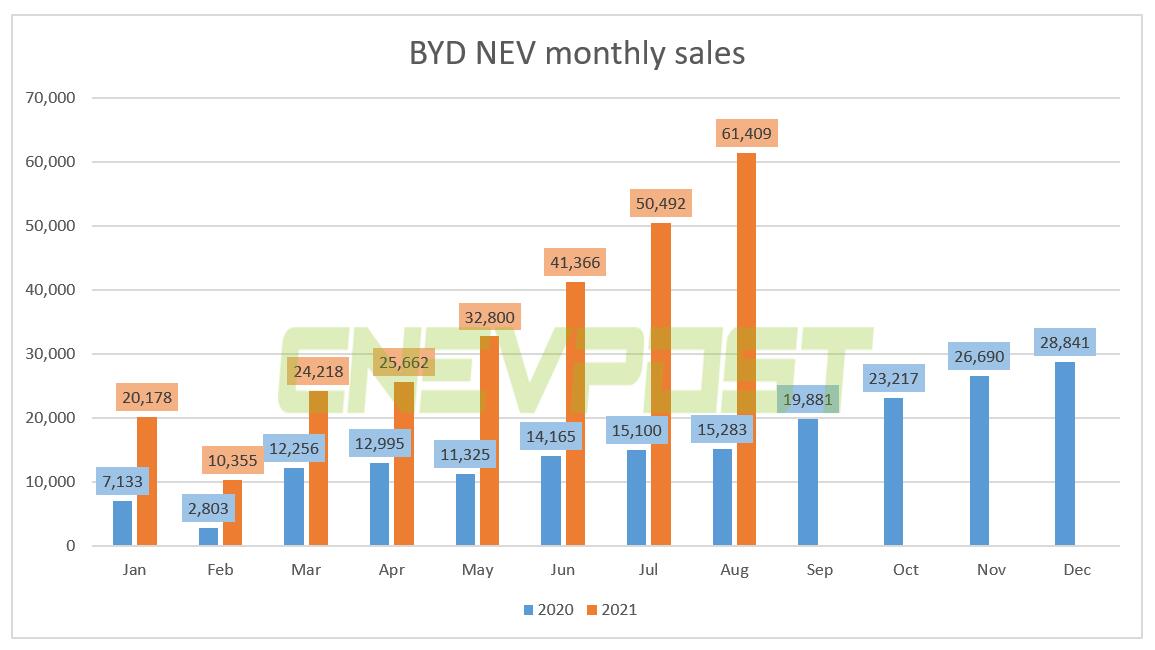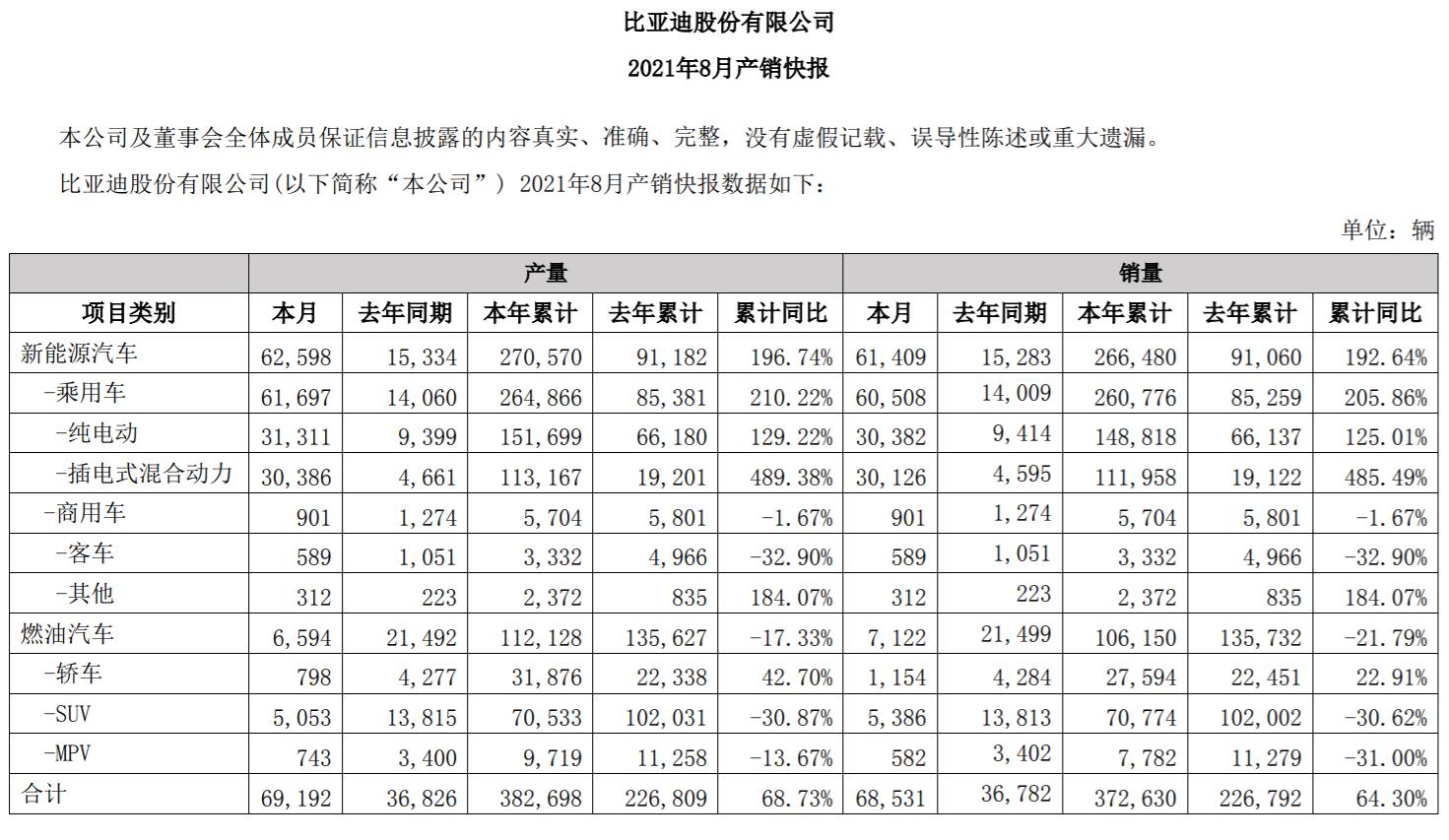
(Graphic by CnEVPost)
BYD sold 61,409 new energy vehicles (NEVs) in August, up 302 percent from a year earlier and about 22 percent from July.
That includes 60,508 passenger cars, and 901 commercial vehicles, the Shenzhen-listed company said in an announcement Friday.
Among new energy passenger vehicles, BYD sold 30,382 pure electric vehicles in August, up 223 percent from 9,414 units a year earlier. It sold 30,126 units of plug-in hybrids in August, up 556 percent from 4,595 units a year earlier.
From January to August, BYD's new energy vehicle sales were 266,480 units, up 193 percent from the same period last year.
It sold 260,776 new energy passenger vehicles in the first eight months, up 206 percent year-over-year, and 5,704 commercial vehicles, down 1.7 percent year-over-year.
BYD sold 148,818 all-electric vehicles from January to August, up 125 percent year-over-year. It sold 111,958 plug-in hybrids during the period, up 485 percent year-over-year.
The company sold 7,122 fuel vehicles in August, down 67 percent from 21,499 in the same month last year. From January to August, it sold 106,150 fuel vehicles, down 22 percent from a year earlier.
BYD's all vehicle sales topped 68,531 units in August, up 86 percent from a year ago. It sold 372,630 all vehicles in the January-August period, up 64 percent from a year earlier.
The company's total installed capacity of new energy vehicle power batteries and energy storage batteries in August was about 3.521 GWh, and the total cumulative installed capacity for the year was about 19.229 GWh.
BYD's performance is in stark contrast to China's new car makers as they are generally hit by a shortage of chips.
This may be because BYD produces a lot of its own chips and seems to have more experience in supply chain management.
BYD's semiconductor business has allowed it to meet its own needs despite the global chip shortage, according to an August 27 article in the official Chinese media Economic Information Daily.
For nearly a year, global car companies have been facing difficulties with chip shortages, with a shortage of MCU chips for vehicles the main reason, the article said.
BYD's sources said the company relied on its long-term layout in the field of automotive semiconductors and its own production to avoid suffering the impact and seize the development opportunities during the same period when many car companies had to reduce or stop production, the report said.
BYD Semiconductor was established in October 2004 and entered the industrial MCU field in 2007, ranking first in China in terms of market share of industrial-grade touch MCUs.
BYD Semiconductor's business then extended from industrial-grade MCUs to automotive MCUs, and launched the first generation of 8-bit automotive MCUs in 2018 and the first generation of 32-bit automotive MCUs in 2019, with batch loading in BYD's full range of models.
